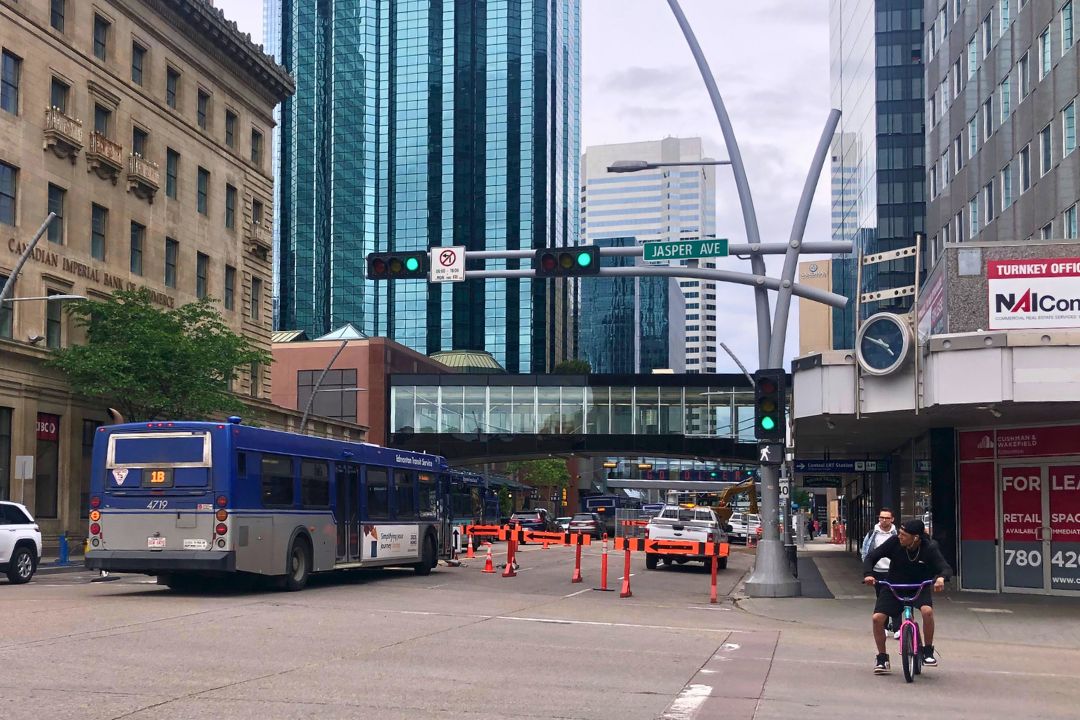
On the agenda: Edmonton's shrinking share of non-residential taxes, infill damage, construction impact
This week, council committees will meet to discuss options to attract non-residential investment, programs to compensate homeowners negatively affected by infill construction, and grants for business owners near major city construction.
There is a community and public services committee meeting scheduled for June 17, an urban planning committee meeting scheduled for June 18, and an executive committee meeting scheduled for June 19.
Here are key items on the agenda:
- Administration is warning council about the city's shrinking share of the non-residential tax base, caused by business owners increasingly choosing to locate in other municipalities in the region. From 2010 to 2022, the non-residential tax base grew by nearly $30 billion across the region, but Edmonton realized just 41% of that growth. Edmonton's share of the total regional non-residential tax base is in decline, falling from 72% in 2008 to 60% in 2022. The non-residential tax base is important for the City of Edmonton's financial viability, as businesses typically pay higher taxes than residential property owners and consume fewer services, administration said in a report that's scheduled to be presented at an executive committee meeting on June 19. Administration has updated the industrial investment action plan in hopes of attracting more industrial businesses to Edmonton to grow the non-residential tax base. If council approves the plan, administration said it will improve business processes for industrial development, identify incentives for industrial sectors, and collaborate with Indigenous communities to advance Indigenous industrial development, among other actions. The plan is set to be discussed at the same executive committee meeting, where the committee could recommend council approve it. If council approves the plan, administration will create a detailed implementation plan.
- Administration recommends the city should not get involved in disputes where an infill developer damages adjacent homes, according to a report that's scheduled to be discussed at an urban planning committee meeting on June 18. Councillors asked administration to look into how the city could help homeowners whose properties are damaged by infill developers, but administration said doing so would come with financial and legal risks to the city. The city also examined whether it should require shoring when builders are creating a typical basement, and estimates it would extend construction timelines by about two to four weeks and cost up to an additional $50,000 per new house. Administration said it's working on a construction accountability program to target builders who repeatedly create non-compliant conditions at construction sites.
- City administration does not support establishing a financial assistance program for businesses affected by major construction. In a report that's scheduled to be discussed at an executive committee meeting on June 19, administration said financial support would be provided after losses occur and may not help in time. The assistance program would also assume that construction was responsible for any financial loss rather than external factors like changing market conditions, increasing costs, or inefficient business models. City staff estimate the program to cost $225,000 per 100 businesses, plus $200,000 in administrative costs. Administration has also presented the option of establishing a grant program, where the city would proactively give money to businesses near major construction projects. The proposed financial assistance program is scheduled to be discussed at an executive committee meeting on June 19.







